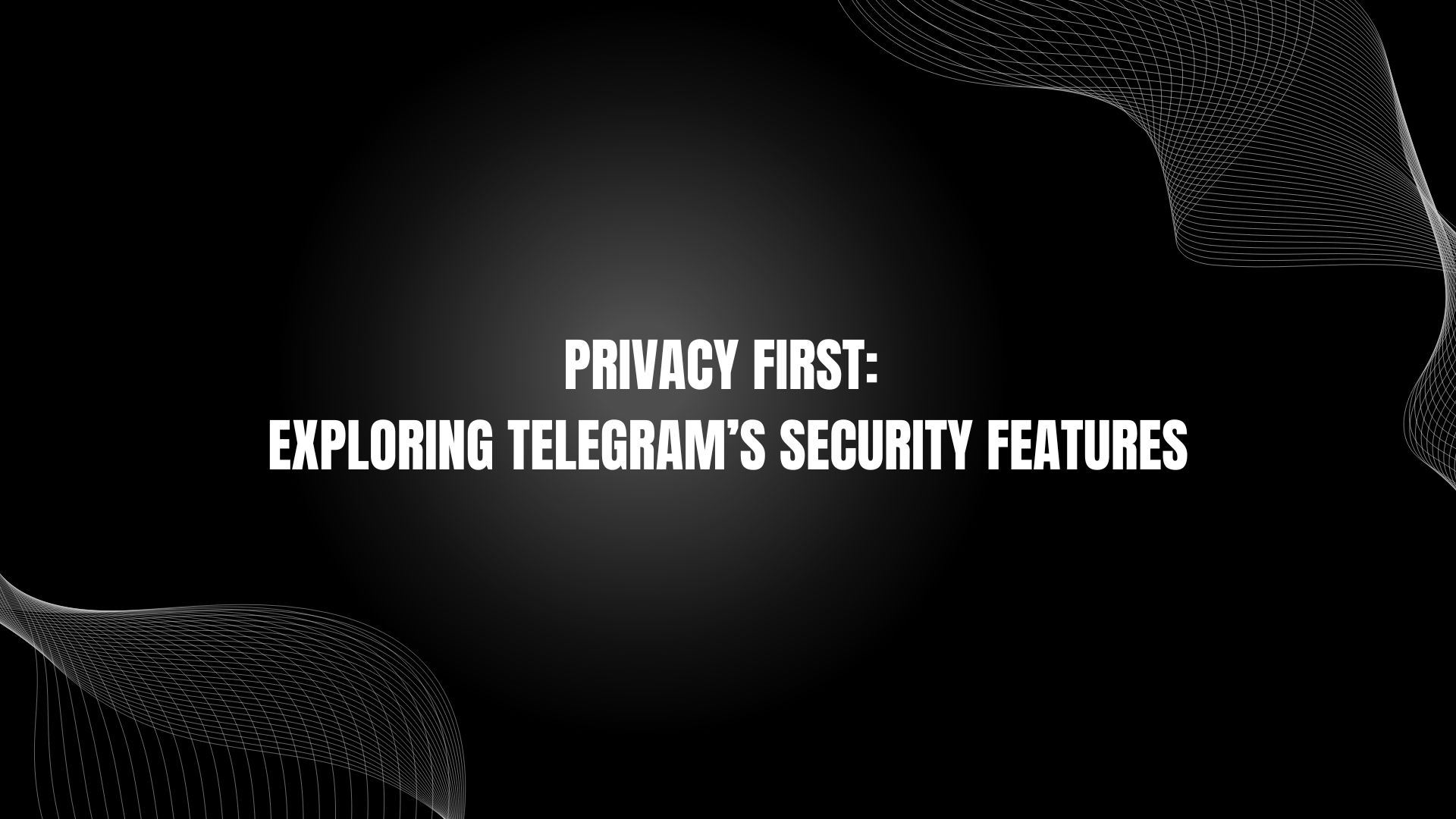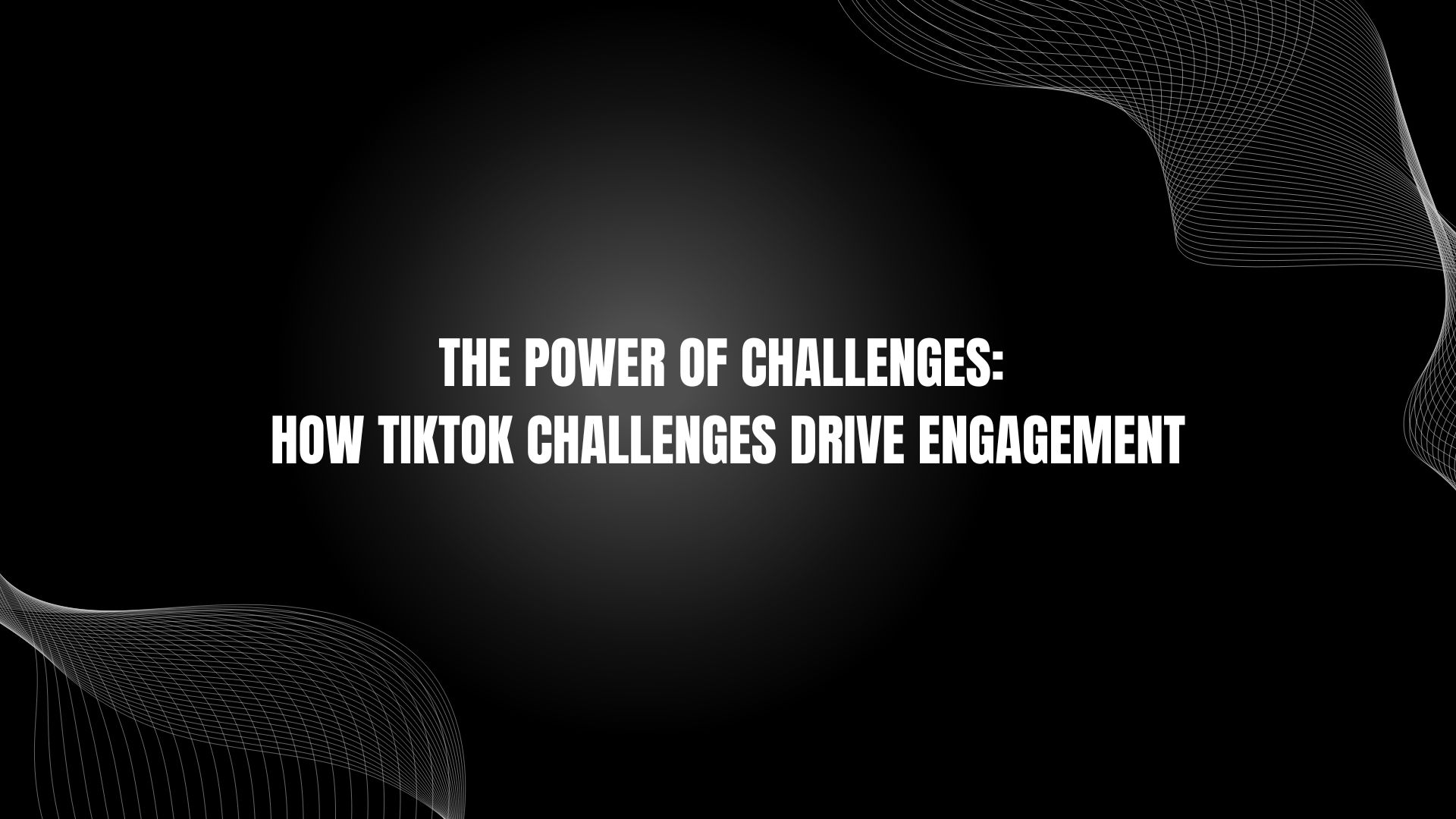Privacy First: Exploring Telegram’s Security Features
In today’s digital age, where privacy concerns are at the forefront, you might be considering Telegram due to its reputation for security. Telegram offers end-to-end encryption in its Secret Chats, aiming to keep your conversations private.
But it’s crucial to delve deeper, especially into the regular chats that are stored on centralized servers. Could this storage method compromise your data?
What does Telegram’s security mean for you?
Understanding the full scope of Telegram’s security measures is key to gauge how well your personal information is safeguarded. For instance, while Secret Chats are encrypted from start to finish, the regular chats are not.
These are stored on Telegram’s servers and, if compromised, could potentially expose your data.
Are there risks?
Yes, there are risks involved. If Telegram’s servers are hacked, your regular chats could be at risk of being accessed by unauthorized parties.
This scenario underscores the importance of using Secret Chats for sharing sensitive information.
How can you enhance your security on Telegram?
To maximize your privacy, always opt for Secret Chats when discussing confidential topics. Additionally, consider using a VPN to encrypt all your internet traffic, further protecting your data from potential eavesdroppers.
Conclusion
While Telegram does offer robust security features, like end-to-end encryption in Secret Chats, the security of regular chats, due to their storage on centralized servers, might not meet the highest standards of privacy.
By understanding these details and using the available security features wisely, you can better protect your personal information on Telegram.
Telegram’s User Base and Perception
Telegram’s Growing Influence in the Digital Realm
Telegram, boasting a vast global user base of over 700 million, has become a beacon for individuals who prioritize privacy in their digital communications. Many people know Telegram for its strong privacy focus, which greatly enhances its attractiveness. This sets it apart from other mainstream messaging apps that may not prioritize user privacy as strongly.
Why Privacy Matters
In today’s digital age, privacy is a significant concern. Telegram addresses this by offering a platform that emphasizes protecting users’ personal information. This approach resonates with many who are increasingly wary of how other popular platforms handle their data.
Choosing Telegram isn’t just about selecting a messaging tool; it’s about aligning with a service that actively protects your data privacy.
Understanding Telegram’s Security Features
One of the key attractions of Telegram is its encryption capabilities, which secure messages from unwanted scrutiny. However, it’s important to understand that while Telegram offers encrypted messaging options like secret chats, not all communications within the app are automatically end-to-end encrypted.
This differentiation is crucial for users to make informed choices about their communication tools.
Continued Scrutiny and Trust
It’s also vital to stay informed about the ongoing discussions concerning Telegram’s encryption practices and data collection policies. These discussions can affect how users perceive and trust the platform.
Being aware of these factors helps users make better decisions about their digital communication tools.
Conclusion
Encryption Strengths and Weaknesses
Telegram offers two different types of chat encryption, which can impact your privacy depending on how you use the app. Let’s break it down:
Secret Chats are where Telegram shines in terms of security. These chats use end-to-end encryption, which means only you and the person you’re chatting with can read the messages. No one else, not even Telegram, has access to these messages. This setup is great for sharing sensitive information confidently.
On the other hand, regular chats don’t have this level of security. They’re only encrypted during the transmission process, which means once they reach Telegram’s servers, they can be accessed by the company. Although these messages are secure against eavesdroppers during transit, the fact that they’re stored on servers makes them less private.
Why does this matter? In today’s digital age, where data breaches and privacy concerns are on the rise, knowing the type of encryption your messaging service uses is crucial. If privacy is a major concern for you, opting for services that offer end-to-end encryption by default for all chats, like Signal, might be a better choice.
Telegram uses a protocol called MTProto to encrypt messages. It’s effective in securing your messages against potential intercepts. However, it’s important to remember that without end-to-end encryption as a default setting, your regular chats might still be vulnerable. This is a key consideration if you’re deciding which messaging app best fits your privacy needs.
Supercharge Your Social Media Presence
Accelerate Your Social Growth Today! Get the engagement you deserve with premium likes, followers, and views. Join thousands of successful creators who've cracked the code to social media fame across Instagram, TikTok, YouTube, and beyond.
Secret Chats Vs. Cloud
Understanding Telegram’s Secret Chats and Cloud Chats
When you use Telegram’s Secret Chats, your messages are protected with end-to-end encryption. This means only you and the person you’re chatting with can read what’s sent, and nobody in between, not even Telegram. This setup is ideal for sharing sensitive information because it keeps your messages secure from prying eyes.
On the other hand, regular Cloud Chats on Telegram use a different type of encryption, which involves encrypting messages as they travel from your device to the server. While these messages are also encrypted on Telegram’s servers, the company itself can access them. This might be necessary for legal reasons or if the authorities demand it. It’s important to understand this because it could affect your privacy.
Why Choose Secret Chats?
Secret Chats offer extra features like messages that disappear after a set time and restrictions on screenshots. These aren’t available in Cloud Chats. For those who need tighter security, such as journalists sharing confidential information or anyone discussing private matters, Secret Chats are the better choice.
Remember, Telegram sets up Cloud Chats by default. You’ll need to manually start a Secret Chat if you want the additional privacy and security features. It’s a straightforward process and well worth it if privacy is a priority for you.
MTProto Protocol Overview
The Essentials of MTProto Protocol
Telegram utilizes its proprietary MTProto protocol to encrypt your messages, ensuring they’re shielded using a mix of symmetric and asymmetric encryption techniques. This means that the protocol uses two types of encryption: one for securing the shared secret key between you and your recipient, and another to encrypt the actual message with this key. The goal? To make sure only you and the intended receiver can read the contents.
How Encryption Works in Telegram
It’s crucial to note that Telegram doesn’t enable end-to-end encryption by default for all conversations. Regular chats are encrypted, but the encrypted data is still processed and stored on Telegram’s servers. This setup might pose privacy risks since it could potentially allow access to your chat data under certain circumstances.
Why Choose Secret Chats?
For heightened security, Telegram offers “Secret Chats,” a feature that uses end-to-end encryption. This ensures that messages are only saved on the involved devices — yours and your recipient’s.
Secret Chats also allow messages to automatically delete after a set time, boosting your privacy. Since MTProto is open-source, developers worldwide can examine and enhance its security, making it a robust choice.
Considerations for Using Telegram
Although Telegram’s regular chats are encrypted, they’re stored on centralized servers. This could potentially expose your data to government requests or cyber threats.
For sensitive communications, it’s wise to use Secret Chats. These chats provide extra security, ensuring that no one else, not even Telegram, can access the messages.
End-to-End Encryption Limits
Understanding the security features of Telegram is crucial, especially if you’re considering it for private conversations. Telegram offers a feature called Secret Chat that provides end-to-end encryption, meaning only you and the person you’re chatting with can read the messages. This is great for privacy but it’s important to note that this feature isn’t the default setting.
Most conversations on Telegram use what’s called the MTProto protocol. This means messages are encrypted when sent but not end-to-end. Instead, they’re stored on Telegram’s servers. Why does this matter? Because it makes these messages accessible not only to Telegram but potentially to legal authorities if they issue a request. This could be a privacy concern if you’re sharing sensitive information.
Unlike Telegram, apps like Signal encrypt all messages end-to-end by default. This shows a clear difference in how the two apps approach user privacy and security.
Also, you have to choose to use Secret Chat in Telegram yourself; it won’t turn on automatically. It’s easy to miss this step and compromise your privacy without realizing it. Moreover, the risk of phishing attacks and other security threats make it all the more essential to understand these settings and choose wisely when handling sensitive information.
In summary, if privacy is a top priority for you, consider using apps like Signal that offer uniform end-to-end encryption. For Telegram, make sure to actively select Secret Chat for private conversations to ensure your chats are protected.
Always stay alert to the type of encryption and security features any communication app offers before sharing your personal information.
Server Security and Legal Risks
When exploring the server security of Telegram, it’s essential to understand the unique challenges posed by its decentralized structure. Unlike traditional, centralized systems, Telegram’s servers are spread across different locations, enhancing user privacy. However, this setup makes it tricky to fully grasp how the platform aligns with the diverse legal standards of various countries.
Why is this important? The way Telegram handles its server architecture directly impacts the safety and confidentiality of your data. As privacy becomes a hotter topic globally, platforms like Telegram navigate a complex landscape of regulations and legal obligations. For instance, some countries have strict data retention laws that could conflict with Telegram’s privacy policies.
In practical terms, if you’re using Telegram for sensitive communications, you should be aware of these potential legal intricacies. This isn’t just about understanding where your data is stored but also how it’s protected under different legal frameworks. For example, Telegram has been proactive in offering encrypted messaging features, which are crucial for secure communication but can also attract scrutiny from authorities.
Transitioning smoothly, it’s clear that Telegram’s commitment to privacy is a double-edged sword. On one side, it offers strong encryption and security features. On the other, it must constantly adapt to the evolving legal requirements of the countries where it operates. This balancing act is vital for maintaining user trust and ensuring the platform remains a safe space for communication.
To navigate these waters safely as a user, staying informed about the latest developments in data privacy laws and understanding how they apply to the services you use, like Telegram, is crucial. This knowledge not only helps in making informed decisions about your communication channels but also in protecting your personal information in an increasingly digital world.
Decentralized Server Challenges
Challenges of Telegram’s Decentralized Servers
Telegram’s approach to server setup, with its data centers spread across various global locations, directly impacts how secure and private your data remains. The essence of this architecture is to enhance user privacy by scattering data geographically.
Nevertheless, this can also lead to discrepancies due to differing legal standards in each region, potentially affecting how your information is handled and protected.
Privacy and Legal Complexities
When using Telegram, which encrypts messages through your phone, you should be aware of potential privacy risks. Various countries might request access to data for legal reasons, but because Telegram stores user data in fragments across different servers, complying with these requests can be complex and legally challenging.
This fragmented storage system, while beneficial for security, complicates legal compliance and can lead to legal disputes.
Data Retention and Legal Risks
It’s important to understand that lack of uniform data retention guidelines can cause conflicts. Each country may have different demands for data access, which might clash with Telegram’s commitments to user privacy.
This variation can pose substantial legal challenges for you as a user relying on Telegram for secure communication.
Maintaining Confidentiality
As you continue to use Telegram, remember these intricacies could impact the confidentiality and integrity of your personal data.
Always stay informed about the potential legal and privacy challenges associated with decentralized data storage systems like those used by Telegram. Being aware helps in better protecting your sensitive information.
Conclusion
In summary, while Telegram’s decentralized servers aim to protect user privacy, they also introduce a layer of complexity, especially when navigating through varied legal landscapes.
Legal Compliance Concerns
Telegram’s decentralized approach to storing data can make it tricky to meet international legal standards. With servers scattered across different countries, you might face varying legal requirements, especially as your user base expands. This can include demands for government surveillance or data access, which vary widely by location.
One concern is that Telegram’s regular chats don’t have end-to-end encryption by default. This means that these messages, stored on Telegram’s servers, could be accessed if legal authorities demand it. This poses a risk to your personal information and makes it harder to comply with strict privacy regulations like the GDPR. Under GDPR, Telegram must have a representative within the EEA to handle your data rights, such as deleting or changing your data.
Understanding these legal challenges is crucial for maintaining trust and staying compliant. As a user, you deserve clear information on how your data is managed and protected, especially in places with tough data retention laws. Knowing this helps you see how Telegram tries to balance user privacy with legal responsibilities.
For a better experience and enhanced privacy, you might consider using services like Signal or WhatsApp, which offer end-to-end encryption by default. This feature ensures that only the communicating users can read the messages, not even the service providers.
Data Collection and Privacy Issues
Telegram, popular for its security features, has some notable privacy issues due to its data collection practices. For starters, when you sign up, Telegram asks for your phone number, which could hinder your anonymity. This is different from apps like Signal, which let you register without a phone number, thus offering better privacy.
Moreover, Telegram gathers metadata such as your IP address and device information. This kind of data can tell a lot about your activities and who you communicate with, which amplifies privacy threats. Telegram claims it doesn’t use your personal data for ads, but it does keep basic account information and might share it with authorities if legally required.
You can control the visibility of some of your data and request to have your information deleted. Yet, Telegram holds onto metadata for up to a year for security reasons, which remains a concern, especially in delicate situations. Remember, even if you delete messages, the metadata stays, which could lead to privacy issues.
Why This Matters
Understanding these details helps you make informed decisions about using Telegram, particularly if privacy is a major concern for you. Knowing what data the app collects and retains enables you to weigh the benefits against potential privacy risks.
Tips for Enhanced Privacy
- Regularly review your privacy settings.
- Consider using more privacy-focused apps if anonymity is crucial.
- Stay informed about updates and changes to Telegram’s privacy policy.
Future Security Updates and Practices
In today’s digital age, privacy and data security are hotter topics than ever, and Telegram is at the forefront, enhancing its security measures to protect users. Telegram is investing in top-notch encryption to ensure your conversations stay private and secure.
They’re also planning to introduce biometric authentication, adding an extra layer of security to keep your interactions safe.
Regular app updates are another key focus for Telegram. These updates are crucial as they bring the latest security enhancements and fixes, keeping the app resilient against new cyber threats. This isn’t just about incremental improvements; it’s about evolving with the times to provide a secure platform that you can trust.
Moreover, Telegram works closely with cybersecurity experts to ensure that new features, like improved group chat controls and secure video calling, maintain your privacy. This collaboration is vital as it helps the app stay safe without sacrificing functionality.
You can use these features with confidence, knowing they’re built to protect your privacy.
Managing Privacy Settings Effectively
Stay in Control of Your Privacy on Telegram
In today’s digital age, where privacy concerns are more relevant than ever, it’s crucial to know how to manage your privacy settings on Telegram. Adjusting these settings allows you to decide who can see your profile picture, last seen status, and phone number. This not only keeps your personal information safe but also gives you peace of mind.
Why Regular Checks Matter
It’s important to check these settings regularly. Over time, your privacy needs may change, and the default settings mightn’t be robust enough. For instance, you might’ve initially been okay with everyone seeing your last seen status, but now prefer more privacy.
Boost Your Security
Adding two-step verification significantly increases your account’s security. With this feature, anyone trying to log into your account from a new device will need not only the SMS code but also a password you’ve set up. Think of it as a double lock that keeps intruders out.
Keep Sessions in Check
Make sure to keep an eye on your active sessions. If you see devices that you no longer use or don’t recognize, it’s wise to log them out. This prevents old devices from becoming a security loophole.
Handle Unwanted Interactions
If you encounter any unwanted users or suspicious activities, don’t hesitate to use the block and report features. This helps keep the platform safe not just for you, but for everyone.
In Conclusion
Managing your privacy settings on Telegram isn’t just about security—it’s about taking control of your digital presence. By staying proactive, you ensure that your personal information remains just that—personal.
Regular updates and mindful management of your settings are the best ways to protect yourself in the ever-evolving digital landscape.
Bot Interactions and Payment Security
Adjusting your privacy settings on Telegram is a crucial first step in protecting your online presence. Understanding how to interact with bots and ensuring secure payments is key.
Telegram allows you to engage with third-party bots that can access some of your basic information, as outlined in the platform’s privacy guidelines. You have control over the specific data you share with these bots, giving you an added measure of security.
When you use Telegram’s Payment Platform for Bots, which was introduced in version 4.0, it’s vital to know that Telegram doesn’t process these payments directly. Instead, they rely on reputable third-party providers. This means your credit card details aren’t stored on Telegram’s servers, significantly reducing the risk of data breaches.
Telegram also gives you the tools to manage bot permissions and delete your payment information at any time through your settings. This level of transparency about how your data is used with bots and during payment processes should give you peace of mind about the platform’s security measures.
Conclusion
When considering Telegram for private conversations, it’s crucial to use Secret Chats. This feature ensures that your messages are encrypted from end to end, making it much harder for anyone to access them without permission. Regular chats, in contrast, are stored on centralized servers and might not offer the same level of security, leaving them more exposed to potential breaches.
It’s important to understand the risks involved with using any online platform. Telegram, while offering robust security features, does store some user data that could be subject to legal inquiries or data breaches. Staying updated on how these issues are handled by Telegram can help you make more informed decisions about using its features.
Be wary of using bots and the payment functionalities on Telegram. These features, while useful, can sometimes be less secure than the core messaging functions, potentially opening up avenues for security vulnerabilities. For instance, bots can access certain data on your chats if not properly managed.
To protect your privacy effectively, always be proactive in managing your settings and understanding the terms of service. For example, enabling two-step verification can add an extra layer of security to your account.
In summary, while Telegram can be a secure way to communicate, it requires careful use of its features, particularly Secret Chats. Regularly reviewing and adjusting your privacy settings, being aware of the platform’s data handling practices, and cautiously using additional features like bots and payments are all essential steps to ensure your data remains safe.





